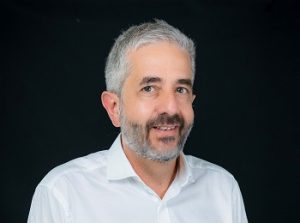Ce module a été développé afin de rendre le site Efrei accessible au plus grand nombre.
Si malgré notre vigilance, vous rencontriez le moindre problème d’accessibilité sur notre site, n’hésitez pas à nous contacter à l’adresse site-groupe@efrei.fr ou par téléphone au +33 188 289 000.

Etienne Pernot Head of Research at Efrei Research Lab

BIO
Can you introduce yourself in a few words ? What is your position at Efrei ?
“I am 59 years old, I am Director of Research and Development and a member of the Efrei management team. I went through Polytechnique, Télécom Paris, a Master’s degree in astrophysics, a PhD in Applied Mathematics, 7 years of research, and then a career in the corporate world where I was a Business Unit Director. I would say that my favorite position is that of Product Manager, the only one who has the global vision in the company, who understands from end to end, from the customer to the product, from sales to the technical side.”
What do you teach to Efrei students? For which program?
“Currently, I only give 2 days of teaching in Master 2 on management. It’s outside the field of research, but I want to pass on my knowledge of business and enterprise to students.”
How did your background lead you to be a teacher-researcher at Efrei?
“I bring to Efrei a dual skill set: my background as a researcher in Artificial Intelligence and my background as a business unit director in a company.”
What is your role within the research team?
“My mission is to help students, train them through research and train them in research, help researchers to carry out their research work in the best conditions, help the school to develop its Research Laboratory so that it remains at the forefront of its field on a national and international level.
Can you briefly introduce your research work and explain it to us?
“I don’t do research myself, but from my background in industry, there are two areas that I am particularly interested in because they are essential, in my opinion, to apply research to the industrial world:
- the digitization of human knowledge, allowing then the cooperation with Machine Learning
- Trusted Artificial Intelligence: how AI can be explained, qualified, validated, certified.
These rich domains are studied by some of the researchers of the Efrei Research Laboratory. ”
What was the most rewarding project for you and why?
“It was the moment when my research work finally started to be used in the “real” world of business. You don’t realize it, but ultimately from research to operational realization is a very long and difficult road. This doesn’t minimize the importance of research at all, but just like in the plant world, you need a seed to start, but then it takes time between the seed and the tree!”
What aspects of your job are you most passionate about?
“Combining research and teaching. You can do research without teaching. You can teach without doing research. I am passionate about the merging of the two.”
Why is research important in digital?
“It’s a world that evolves so quickly, that we can quickly be outdated. Efrei research forces us to always be on top of the technique and technology.”
Are students integrated into research on campus?
“Students, without fully realizing it, are very often in contact with research, because many teachers are professors-researchers, infusing them, sometimes without their knowledge, with this “research” mentality.
The Master 1 and 2 internships are an opportunity for some of them to work on a real research topic and to make their contribution to the building.
Many projects are also research projects.
Finally, the “Research Course” is particularly interesting: it allows students who wish to do so to learn about research very early on by working on a real field of research under the supervision of an Efrei researcher.
For a student wishing to go into this field, what advice would you give? What key skills would you advise them to develop?
“When you choose to do research, you don’t vow to do it all your life! It is quite possible to do research for a few years and then move on to a company. I can testify to that. Obviously, the more the subject of your research has direct industrial applications, the easier it is to move from research to industry.
But one can just as easily remain in research all one’s life, especially since the job of “senior” researcher can cover, if one so desires, many other jobs related to supervision, teaching, management, etc.
And you don’t have to be Einstein to start a research career. Doing a PhD requires the will to really go deep into a subject, requires consistency during these 3 years, and demonstrates an ability to close and conclude your subject at the end of this period.
I think that’s why, in the industry, the PhD is the best degree, the only one with a worldwide recognition and a strong image. These three years of thesis enrich and shape the whole professional life.”
Any final words?
“I invite students interested (really, potentially, partially, possibly or even weakly…) in research to contact me to talk about it. It will always be a pleasure to exchange.”